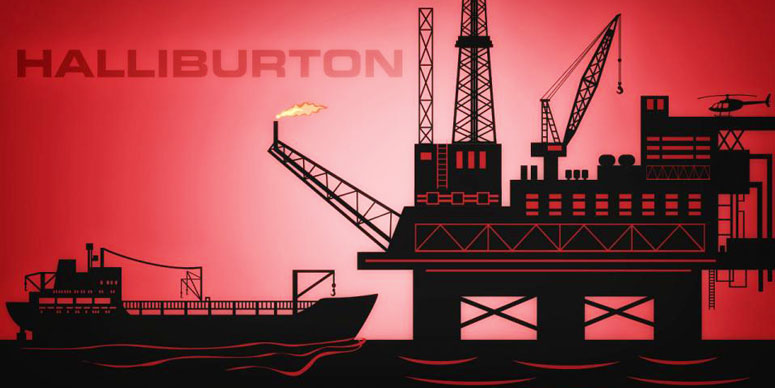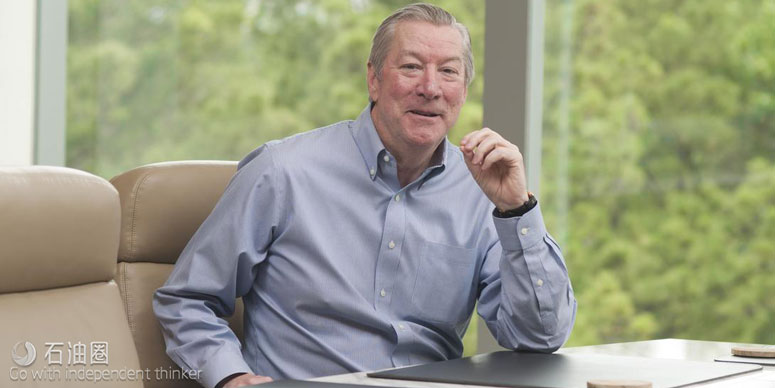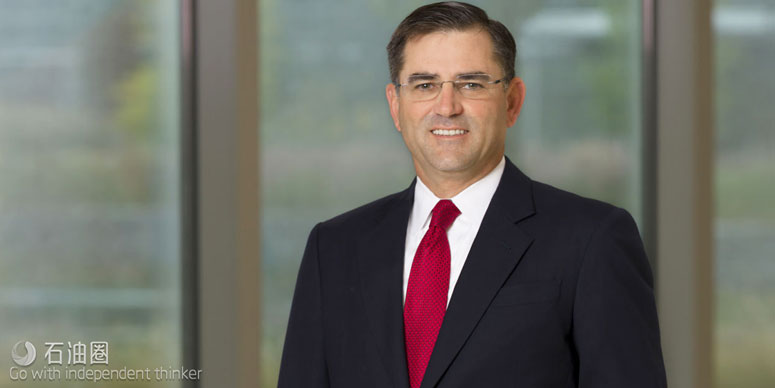After nearly 17 years at the helm of Halliburton (Ticker: HAL), Dave Lesar will be passing the title of CEO on to the company’s current president, Jeff Miller. The company announced Wednesday that its board of directors unanimously elected Miller to the role of both president and CEO effective June 1, 2017.
Lesar will remain executive chairman, continuing to help decide the strategic direction of the company, advising the management team and transitioning CEO responsibilities to Miller, who will provide day-to-day leadership for the company.
David Lesar, Executive Chairman of Halliburton
Lesar joined Halliburton in 1993 and has served the company in a variety of roles. He has served as chairman and CEO since 2000. He served as president and chief operating officer of Halliburton from June 1997 to August 2000 and continued as president until August 2014. Previously he was executive vice president and CFO of Halliburton, and executive vice president of Finance and Administration for Halliburton Energy Services, a Halliburton business unit. Lesar holds a Bachelor of Science and a Master of Business of Administration from the University of Wisconsin. He serves on the board of directors of the American Petroleum Institute.
Miller joined Halliburton in 1997 and has since served in several leadership roles, including chief operating officer until 2014 when he was named president and was appointed to the Halliburton Board of Directors. Miller holds a Bachelor of Science in agriculture and business from McNeese State University in Louisiana, and an MBA from Texas A&M University. He is a certified public accountant, a member of the Advisory Council for Texas A&M University Dwight Look College of Engineering, and a member of the board of directors for Atwood Oceanics, Inc.
Jeff Miller, President and CEO of Halliburton
Miller said in an interview that his strategy is to dominate the “last mile” of oil and gas production — fracking, cementing and other processes that bring a well into operation. In a period when analysts widely expect oil prices to remain lower for longer, the key, Miller said, is to help producers churn out oil for fewer dollars per barrel as quickly and efficiently as possible.
“I love the way the market it is shaping up, particularly in North America,” said Miller. “We love the businesses we’re in.”
Jeff Miller, named Halliburton CEO, has experience taking the reins
Jeff Miller, the next chief executive of the energy services company Halliburton, learned to take the reins by literally taking the reins.
Growing up in Dallas, he fell in love with rodeos, working on horse farms, honing his riding and roping skills and earning a rodeo scholarship to McNeese State University in Louisiana. He even competed in roping events on the professional rodeo circuit 30 years ago, including the Houston Livestock Show and Rodeo.
Miller, named last week as the successor to outgoing CEO Dave Lesar, has brought that same determination to his 20-year career at Halliburton, where he started in finance, moved into oil field operations and led major projects around the world before returning to Houston prior to 2010 to assume executive posts. Miller, 53, Halliburton’s president since 2014, is known for quietly building relationships with oil company customers and delivering on promises by focusing on execution.
He becomes CEO June 1 at a time when Halliburton, the world’s second-largest oil field services provider, is still recovering from the brutal oil bust and failed merger with Baker Hughes that led to billions of dollars in losses and forced the Houston company to slash 35,000 jobs, about 40 percent of its workforce, over less than two years. He also must lead the company through a consolidating oil field services industry of fewer but potentially stronger competitors.
Baker Hughes, for example, is expected to soon close its merger with General Electric’s oil and gas division to create a combined company expected to surpass Halliburton as the world’s No. 2 energy services company. Meanwhile, industry leader Schlumberger recently bought the North American hydraulic fracturing business of Weatherford International, the No. 4 services provider, to form a venture that could create formidable competition for Halliburton in a region and business that it dominates.
Halliburton is widely recognized as the leader in North American fracturing. As oil prices have recovered and increasingly productive onshore shale fields have sprung back to life, demand for Halliburton’s fracking services has grown rapidly. North American revenues climbed 24 percent in the first quarter of the year from the end of 2016, Halliburton recently reported, and the company has hired more than 2,000 U.S. workers.
Miller, who declined to discuss specific competitors, said in an interview that his strategy is to dominate the
Industry analysts expect that Miller will differ stylistically from Lesar, a gregarious 6-foot-5-inch man often described in energy and Wall Street circles as
Miller said his first mentor was his grandfather. When he realized that his rodeo dreams would not work out, his grandfather, who worked for the drilling contractor Sedco, encouraged a career in business and finance, which led Miller to Texas A&M University and an MBA.
After completing graduate school, Miller went to work at the now-defunct accounting firm Arthur Andersen, where Lesar also worked. Lesar joined Halliburton in 1993; Miller followed four years later in 1997. Lesar, who became CEO when Dick Cheney left to run for vice president in 2000, will remain as executive chairman until 2018 when he reaches the mandatory retirement age of 65.
Despite different styles and personalities, Miller and Lesar share similar strategies for Halliburton’s growth. Miller said he wants to expand in chemicals used in fracking fluids and artificial lift, the process of pumping oil fields after they are drilled and fracked. He said the company is looking to acquire artificial lift businesses while organically growing Halliburton’s chemical business.
Miller had been considered the heir apparent to Lesar since he was elevated to president, but many analysts expected the transition to last longer than a few weeks. Miller, however, said he was ready to dive right in.


 石油圈
石油圈


